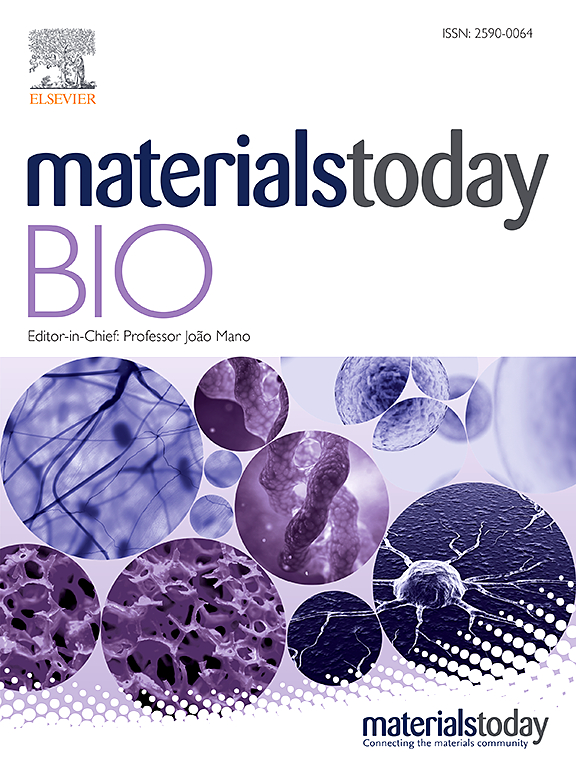Milk-derived exosomes as functional nanocarriers in wound healing: Mechanisms, applications, and future directions
IF 8.7
1区 医学
Q1 ENGINEERING, BIOMEDICAL
引用次数: 0
Abstract
Wound healing presents a significant challenge in healthcare, imposing substantial physiological and economic burdens. While traditional treatments and stem cell therapies have shown benefits, milk-derived exosomes (MDEs) offer distinct advantages as a cell-free therapeutic approach. MDEs, isolated from mammalian milk, are characterized by their biocompatibility, ease of acquisition, and high yield, making them a promising tool for enhancing wound repair. This review provides a comprehensive analysis of the composition, sources, and extraction methods of MDEs, with a focus on their therapeutic role in both acute and diabetic chronic wounds. MDEs facilitate wound healing through the delivery of bioactive molecules, modulating key processes such as inflammation, angiogenesis, and collagen synthesis. Their ability to regulate complex wound-healing pathways underscores their potential for widespread clinical application. This review highlights the importance of MDEs in advancing wound management and proposes strategies to optimize their use in regenerative medicine.

求助全文
约1分钟内获得全文
求助全文
来源期刊

Materials Today Bio
Multiple-
CiteScore
8.30
自引率
4.90%
发文量
303
审稿时长
30 days
期刊介绍:
Materials Today Bio is a multidisciplinary journal that specializes in the intersection between biology and materials science, chemistry, physics, engineering, and medicine. It covers various aspects such as the design and assembly of new structures, their interaction with biological systems, functionalization, bioimaging, therapies, and diagnostics in healthcare. The journal aims to showcase the most significant advancements and discoveries in this field. As part of the Materials Today family, Materials Today Bio provides rigorous peer review, quick decision-making, and high visibility for authors. It is indexed in Scopus, PubMed Central, Emerging Sources, Citation Index (ESCI), and Directory of Open Access Journals (DOAJ).
 求助内容:
求助内容: 应助结果提醒方式:
应助结果提醒方式:


